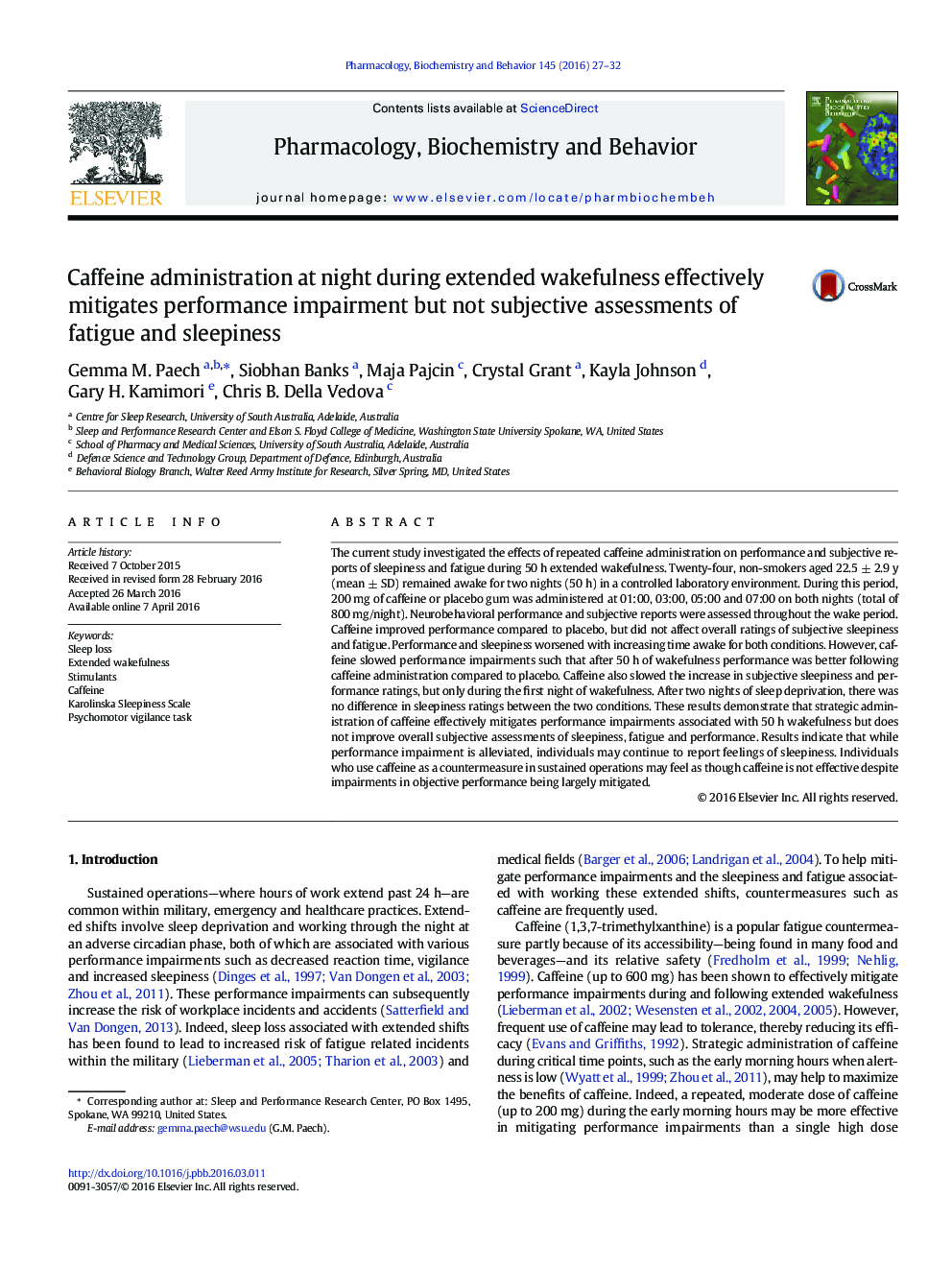| کد مقاله | کد نشریه | سال انتشار | مقاله انگلیسی | نسخه تمام متن |
|---|---|---|---|---|
| 2012605 | 1541840 | 2016 | 6 صفحه PDF | دانلود رایگان |
• We investigated the effects of repeated caffeine administration on performance and subjective sleepiness
• Caffeine effectively mitigated performance impairments during 50h wakefulness
• Caffeine reduced subjective sleepiness ratings, but only on the first night
• Individuals who use caffeine as a countermeasure may feel as though it is not effective despite impairments in performance being largely mitigated.
The current study investigated the effects of repeated caffeine administration on performance and subjective reports of sleepiness and fatigue during 50 h extended wakefulness. Twenty-four, non-smokers aged 22.5 ± 2.9 y (mean ± SD) remained awake for two nights (50 h) in a controlled laboratory environment. During this period, 200 mg of caffeine or placebo gum was administered at 01:00, 03:00, 05:00 and 07:00 on both nights (total of 800 mg/night). Neurobehavioral performance and subjective reports were assessed throughout the wake period. Caffeine improved performance compared to placebo, but did not affect overall ratings of subjective sleepiness and fatigue. Performance and sleepiness worsened with increasing time awake for both conditions. However, caffeine slowed performance impairments such that after 50 h of wakefulness performance was better following caffeine administration compared to placebo. Caffeine also slowed the increase in subjective sleepiness and performance ratings, but only during the first night of wakefulness. After two nights of sleep deprivation, there was no difference in sleepiness ratings between the two conditions. These results demonstrate that strategic administration of caffeine effectively mitigates performance impairments associated with 50 h wakefulness but does not improve overall subjective assessments of sleepiness, fatigue and performance. Results indicate that while performance impairment is alleviated, individuals may continue to report feelings of sleepiness. Individuals who use caffeine as a countermeasure in sustained operations may feel as though caffeine is not effective despite impairments in objective performance being largely mitigated.
Journal: Pharmacology Biochemistry and Behavior - Volume 145, June 2016, Pages 27–32
